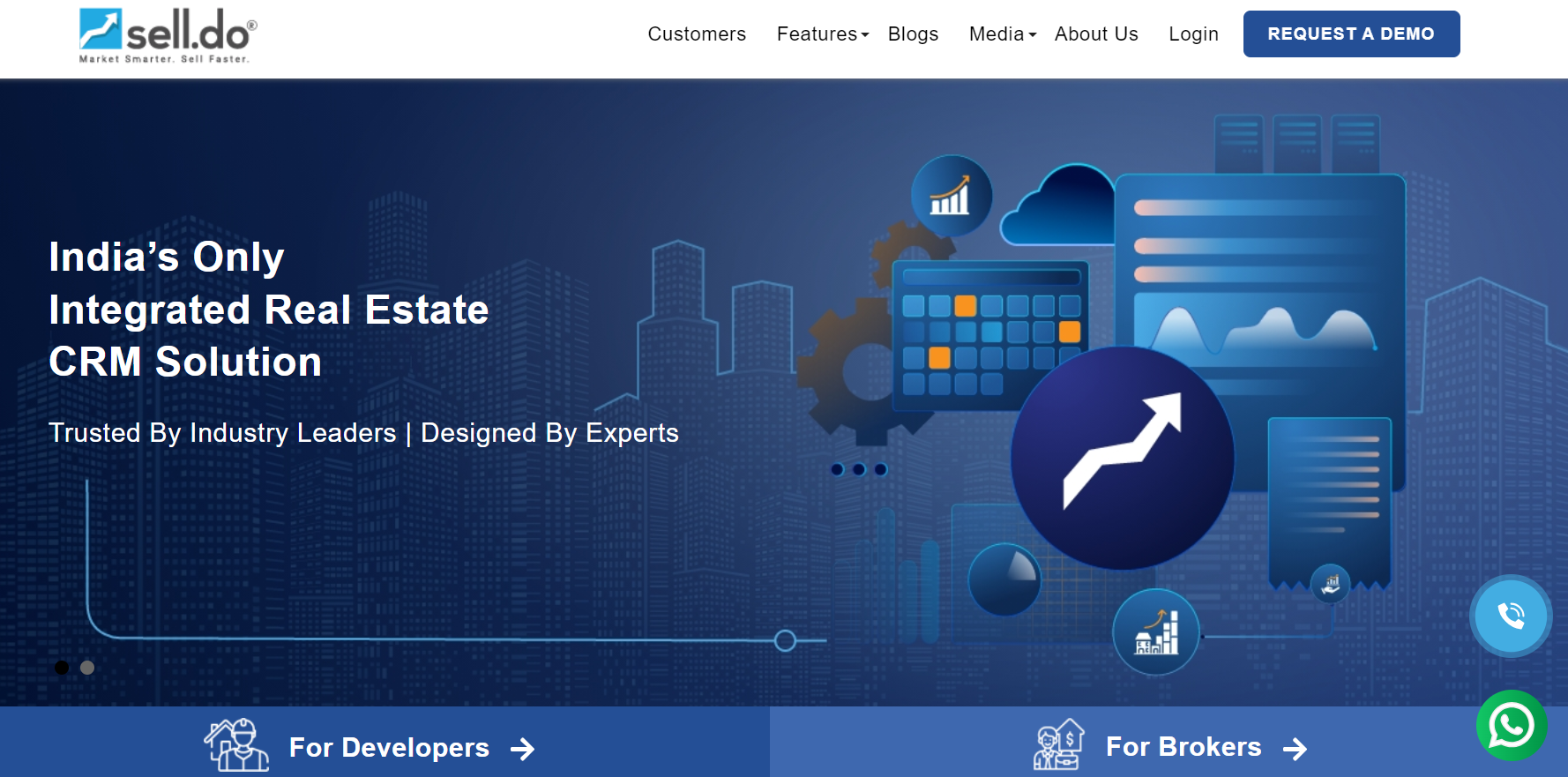You follow up, you show up, and you close. But sometimes, deals still fall apart—not because you lacked effort, but because the information wasn’t where it needed to be, when you needed it. Notes scribbled during a call. A lead you meant to follow up with but forgot. A client who asked for a callback... and slipped through the cracks.
It happens more often than you’d like to admit. And in real estate, those small misses cost big.
That’s where structure makes the difference. Not just more tools, but better ones—especially when it comes to organizing leads, client history, and follow-ups.
A well-built database for realtors doesn’t just store contact details—it helps you work smarter, stay consistent, and close faster. It becomes your silent assistant, keeping track of every conversation, every promise, and every opportunity you’ve earned.
When you’re not wasting time hunting for information, you can actually focus on building relationships—the part that really drives your success.
Understanding the Role of Real Estate Databases
Think of all the moving parts in your daily real estate work—client calls, property listings, site visits, follow-ups, paperwork. Now imagine trying to manage it all without a central system to keep things organized. That’s exactly why a real estate database is important to build a strong, centralized foundation. It gives you a single source of truth where every client interaction, property detail, and deal update lives.
A good real estate database acts like the nerve center of your business. It connects the dots between people, properties, and timelines.
Here’s what the right database brings to the table:
- Tracks every interaction: Calls, emails, site visits, and follow-ups are all logged in one place.
- Connects clients to properties: Matches preferences, budgets, and past conversations with active listings.
- Centralizes transaction updates: Keeps you and your team aligned on deal status, paperwork, and next steps.
- Reduces errors: No more missed leads or duplicate data from juggling too many tools.
- Saves time daily: Search, filter, and access what you need in seconds instead of digging through messages.
- Improves client experience: Quick responses and personalized updates feel effortless when your data is clean and connected.
To make the most of a database for realtors, it’s important to understand the different types available and how each one supports your daily operations.
Also, check our blog: Choosing the Best CRM for Property Developers.
Types of Real Estate Databases

Not all data is equal, and not all databases serve the same purpose. In real estate, your work spans everything from nurturing leads to analyzing market shifts, so it makes sense that different tools handle different parts of the process. The right database for realtors depends on what you're trying to manage: people, properties, deals, or insights. Knowing the types of databases available helps you build a tech stack that actually works for your business, not against it.
Here are six key types of real estate databases and how they support different aspects of your work:
- Client Relationship Databases (CRMs): Designed to manage interactions, follow-ups, and communication history with leads and clients. A strong CRM helps you stay consistent and personalized throughout the sales journey.
- Property Listing Databases: Used to organize, search, and compare active, sold, or upcoming listings. These make it easier to match properties to buyer preferences and share accurate information quickly.
- Transaction Databases: Keep detailed records of deal stages, documents, and timelines. Ideal for staying transparent with clients and ensuring no step is missed.
- Market Data Databases: Provide historical and real-time data on pricing trends, demand, absorption rates, and economic indicators. Useful for developers and firms looking to make informed decisions.
- Geographic Information System (GIS) Databases: Offer detailed geographic and zoning data, helping agents and developers understand location-specific factors like infrastructure, accessibility, and land use.
- Investment and Portfolio Management Databases: Focused on tracking the performance of real estate assets, these help investors monitor returns, risks, and long-term value.
Understanding the types is important, but unlocking their full potential comes down to how strategically you use them in your workflow.
If you’re looking for creative ideas to get leads, check our blog: Real Estate Marketing Ideas and Trends for 2025.
Optimal Use of Real Estate Databases
A real estate database isn’t just about storing contacts—it’s about using them well. If you’re only collecting names without nurturing the relationship, you’re missing the point. Quantity matters, but engagement matters more. After all, a list of 5,000 contacts won’t help if only 20 of them remember who you are.
Using a database for realtors effectively means finding the right balance. You want enough reach to scale your business, but with the consistency to stay relevant to every prospect. That means logging every interaction, adding new leads regularly, and maintaining communication—not just when you’re close to a deal, but even when it’s just a check-in.
Here’s how to get the most out of your database:
- Balance contact quantity with engagement: Avoid the trap of hoarding contacts. Focus on staying relevant and timely with the leads you already have.
- Prioritize quality leads: Segment your database to identify serious buyers, repeat clients, and referrals. Time spent on the right people pays off faster.
- Add contacts consistently: Every site visit, inquiry, or cold call is a chance to grow your database. But growth only works if you keep it clean and updated.
- Maintain communication regularly: Use reminders and automation to stay in touch. It’s easier to close when your customers remember you.
Once you’ve mastered using your database strategically, it’s easy to see the real advantages it brings to every part of your business.
Recommended: Mastering Pre-Sales in Real Estate: Challenges, Solutions, and Best Practices.
Benefits of Using a Real Estate Database

Beyond better lead management, a strong real estate database delivers concrete business advantages that compound over time:
- Centralized data organization: Everything you need—contacts, listings, timelines—is stored in one place and is easy to access anytime.
- Enhanced client management: You can see full interaction history, preferences, and feedback in seconds, so every conversation feels personal.
- Data-driven decision-making: Use stored insights to track patterns, spot slowdowns, and adjust strategies based on actual behavior.
- Operational efficiency: Automate follow-ups, assign tasks, and reduce manual errors so your team can focus on closing deals, not chasing paperwork.
The longer you use a well-managed database, the more valuable it becomes. It’s not just a tool. It’s a long-term asset that grows with your business.
Also, check our blog for Steps and Techniques in the Real Estate Sales Process.
Now, to take those benefits even further, let’s see how automation plays a key role in making your real estate database work smarter and faster for you.
Automation in Real Estate Databases
When a lead shows interest or a client is ready to move forward, the last thing you want is to miss the moment. Thus, having automation built into your database for realtors gives you a serious edge. It handles repetitive tasks in the background, so you can focus on the conversations that matter.
Automation helps you stay consistent, timely, and relevant without adding more to your plate. With the right setup, you can reach more people, in less time, with better results.
- Lead scoring and prioritization: Automatically assign scores to leads based on activity (like property views, inquiry responses, or time spent on listings), so your sales team knows who to contact first.
- Auto-assigning tasks to team members: Set rules to automatically distribute leads, follow-ups, or property visits to available agents based on location, expertise, or workload.
- Drip campaigns: Automate a sequence of messages (emails or texts) tailored to where a lead is in the funnel, such as nurturing new inquiries or re-engaging cold leads.
- Follow-up reminders: The system can remind you when it's time to follow up based on previous contact or a preset schedule, ensuring nothing slips through.
- Behavior tracking automation: Monitor when leads open emails, click on property links, or revisit listings, and trigger actions based on their behavior (e.g., send a listing brochure or invite to a site visit).
- Feedback collection: Automate feedback requests after property visits or transactions, helping you gather insights without chasing responses manually.
- Calendar syncing and scheduling: Automatically sync appointments with your calendar and let clients book time slots directly via email or website links, cutting down back-and-forth.
With automation unlocking new efficiencies, the next step is choosing a real estate database that fits your specific goals and workflow.
Recommended: Top Real Estate Social Network Platforms and Their Strategies.
Choosing the Right Real Estate Database
Choosing a real estate database isn’t just a tech decision—it’s a business decision. The right system doesn’t just store your data; it helps you move faster, close smarter, and grow your brand in a highly relationship-driven market like India.
Here’s what to look for when picking the right database for realtors:
- Lead management and client interaction tools: Make sure the system can track inquiries, follow-ups, and engagement across every touchpoint. You should be able to log calls, emails, meetings, and property interests—all in one place.
- Integration with MLS and property portals: In India, many developers and brokers rely on multiple listing platforms like Magicbricks, 99acres, or Housing.com. Your CRM should integrate with these so you don’t have to update listings in ten places manually.
- Property management features: If you manage inventory for multiple projects, look for built-in tools that let you update availability, track site visits, and manage booking statuses in real time.
- User-friendly interface: You don’t want a system that slows your team down. Look for an intuitive dashboard, mobile compatibility, and minimal training time to get started.
- Reliable customer support: Especially in a high-volume market like India, downtime or confusion can cost you leads. Choose a platform with responsive support and onboarding assistance tailored to your business needs.
- WhatsApp and regional language integration: Many Indian clients prefer WhatsApp for communication. Look for CRMs that allow you to send project updates, brochures, and reminders directly through WhatsApp in English, Hindi, or other regional languages.
- GST-compliant billing and documentation: If your CRM helps with transaction tracking, it should also support Indian tax norms, including automated GST invoices and receipts.
- Custom workflows for B2B and channel partners: In India, channel partners and real estate aggregators play a big role in sales. Look for features that allow you to manage partner leads separately, assign commissions, and track their performance without mixing them into your primary sales funnel.
Your database should work like an extension of your sales team, not just another platform to manage. With the right system, you can cut through the chaos, deliver a better client experience, and grow your business with confidence. This is why we suggest getting Sell.do.
Get Sell.Do, A Dedicated CRM Built for Real Estate

Most CRMs try to serve everyone, which makes them unfit for the real estate industry. Because you're not selling subscriptions or running support tickets—you’re managing high-value relationships, site visits, bookings, legal paperwork, tax compliance, and channel partner networks. A generic CRM simply can’t handle that complexity without forcing workarounds.
Sell.Do doesn’t generalize. It’s built only for real estate professionals in India. From lead capture to post-sale communication, everything is tailored to how your business actually runs. You get one platform that centralizes sales, marketing, partner management, and customer experience—without cobbling together third-party tools.
It’s trusted by over 1,000 real estate developers, active in 26 cities across India and 3 countries, backed by Aurum PropTech, and supported by a dedicated 150+ member team, including 75 tech specialists and a 45-member customer success unit. It’s also #1 in ease of use and the highest-rated real estate CRM on G2.
Key Features of Sell.Do:
- WhatsApp Marketing Automation: Engage buyers on their preferred channel with one-click campaign setup. No integrations needed—save time and convert faster.
- End-to-End Lead Tracking: See the full journey of every lead, from inquiry to closure. Get the clarity you need to focus on what works and fix what doesn’t.
- Automated Lead Nurturing: Never miss a follow-up. Auto-assign leads, trigger personalized emails, and keep communication consistent—without micromanagement.
- Smarter Lead Segmentation: Pull richer data through AI portal integrations so you can tailor your outreach with precision, based on real behavior, not guesswork.
- Performance Insights for Sales Teams: Monitor calls, meetings, and deals in real time. Use smart dashboards to coach better, assign smarter, and close faster.
- Post-Sales Workflow Automation: Manage payment plans, paperwork, tax calculations, and customer communication—all in one place, without manual errors.
- GST & Tax Compliance Made Simple: Let Sell.Do calculate real estate taxes automatically, so every invoice is accurate and compliant, with zero stress.
- Multi-Channel Communication Hub: Call, message, email, or WhatsApp leads without juggling platforms. Everything is logged and visible in one dashboard.
- Productivity & Task Management Tools: Set reminders, track follow-ups, and manage site visits with a system that keeps your team focused and accountable.
- Channel Partner Collaboration: Work seamlessly with brokers and agents. Share inventory, track referrals, automate commissions, and build stronger networks.
- Customer-Facing Features That Build Trust: From eKYC to digital signatures, loan integration to construction updates, keep your buyers informed and confident at every step.
To know exactly how you can benefit from implementing Sell.Do, check our case studies here.
Conclusion
In today’s property market, staying ahead means staying organized, responsive, and informed. But that level of precision isn’t possible with tools built for someone else’s business. Real estate demands its own system—one that understands the sales cycle, the client journey, and the constant coordination between teams, partners, and platforms.
That’s exactly what Sell.Do delivers. Built specifically for real estate, it brings everything under one roof—from intelligent lead handling to streamlined post-sales processes—without the clutter of features you’ll never use. Backed by years of sector focus and trusted by developers and brokerages across India, it’s a platform designed to help you work smarter, close faster, and serve better.
Ready to upgrade your workflow? Connect with us for a demo of Sell.Do today and take the guesswork out of real estate sales.






Leave a comment
Comments (0)
Be the first one to comment.